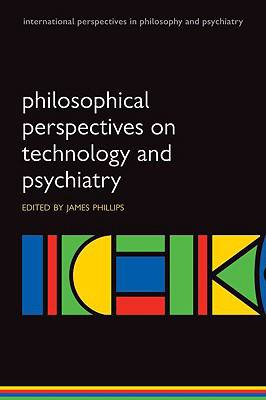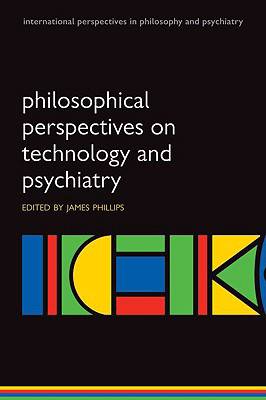
- Afhalen na 1 uur in een winkel met voorraad
- Gratis thuislevering in België vanaf € 30
- Ruim aanbod met 7 miljoen producten
- Afhalen na 1 uur in een winkel met voorraad
- Gratis thuislevering in België vanaf € 30
- Ruim aanbod met 7 miljoen producten
Zoeken
Philosophical Perspectives on Technology and Psychiatry
€ 82,95
+ 165 punten
Omschrijving
Technology has had, and will continue to have, a major effect on the field of psychiatry - in diagnosis, treatment, and prevention. In a collection of stimulating and thought-provoking chapters, this book exams how technology has come to influence and drive psychiatry forward, and considers at just what cost these developments have been made.
Specificaties
Betrokkenen
- Uitgeverij:
Inhoud
- Aantal bladzijden:
- 336
- Reeks:
Eigenschappen
- Productcode (EAN):
- 9780199207428
- Verschijningsdatum:
- 23/10/2008
- Uitvoering:
- Paperback
- Afmetingen:
- 156 mm x 232 mm
- Gewicht:
- 513 g

Alleen bij Standaard Boekhandel
+ 165 punten op je klantenkaart van Standaard Boekhandel
Beoordelingen
We publiceren alleen reviews die voldoen aan de voorwaarden voor reviews. Bekijk onze voorwaarden voor reviews.










